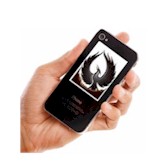

IVR Solutions
This section of our technical library presents information and documentation relating to IVR Development and custom IVR software and products.
Business phone systems and toll free answering systems (generally 800 numbers and their equivalent) are very popular for service and sales organizations, allowing customers and prospects to call your organization anywhere in the country.
The PACER and WIZARD IVR System is just one of many DSC call center phone system features..
What Is IVR?. An Interactive Voice Response (IVR) processes inbound phone calls, plays recorded messages including information extracted from databases and the internet, and potentially routes calls to either inhouse service agents or transfers the caller to an outside extension.
Contact DSC today. to learn more about our IVR services and IVR application development software.
Script Prep Checklist For Smoother Recording Sessions
By Susan Berkley, President of The Great Voice Company
A well prepared script makes a recording session run efficiently, and improves the quality of the recordings. Here are some tips...
1. Scripts should be neatly typed
Serif fonts such as Times Roman are easiest to read. Increase font size to at least 12 points. Double space between each prompt. Hand written notes increase the likelihood of error. Bring a copy of the script for everyone who will be sitting in on the session. The more people listening and following along, the less likelihood for error.
2. Don’t abbreviate
You’ll save time and expensive re-takes if you script everything out exactly as you want it spoken. The pronunciation of many common abbreviations is ambivalent unless you specify how you want them read. Should .inc be read as “ink” or incorporated? Is it “co” or corporation? Should “temp” be read as temporary, temperature or temp? Assume nothing. Spell out all abbreviations. Rather than writing: “numbers 1-100,” script every number you want spoken and give it a corresponding file name. Otherwise a number may be inadvertently missed. Words that are to be spelled out should be written with a hyphen between every letter like this: l-a-k-e-s.
3. Include pronunciation guidelines
Specify the pronunciation of technical or medical terminology, unusual proper names, foreign words and cities, and unusual pronunciations of cities and streets in the United States. Susan Berkley read a script recently for a bank located in “Botetourt, SC.” Because the client didn’t provide pronunciation guidelines, she had to stop the recording session, get the banks phone number from directory assistance and call them to ask how they pronounce their name. Curious? It’s bot-a-tot!
4. Pay attention to page breaks
So that the voice talent doesn't have to turn pages don’t insert a page break in the middle of a prompt. Doing so will help prevent paper rustling noises. Number every page.
5. Use ellipses to show inflection
Numbers can be spoken with an Initial (rising), Medial (neutral) or falling (final) inflection. The standard contextual notation for numbers, understood by professional voice talent, uses ellipses (three dots) to indicate inflection.
Initial: One…
Rising inflection. When the number appears at the beginning of a sentence. Dots after the number
Medial: …one…
When the number is in the middle of a sentence, as in “Your account balance is eighty ONE dollars.” Dots on either side of the number
Falling: …one.
When the number is the last word in a sentence. Dots before the number.
6. Record the most important prompts last
Record the less frequently heard messages first while the talent is still warming up. Put your most important prompts toward the end of the script so by the time the talent gets to them, their voice is warmed up and fully energized. Don’t be afraid to ask the talent to re-record any prompts you didn’t quite like at the end of the session. You’ll usually get a better read the second time around.
To contact The Great Voice Company, please call 201-541-8595 ext 24 or email at ctoye@greatvoice.com
Contact DSC today. to learn more about our IVR services and IVR application development software.
|



